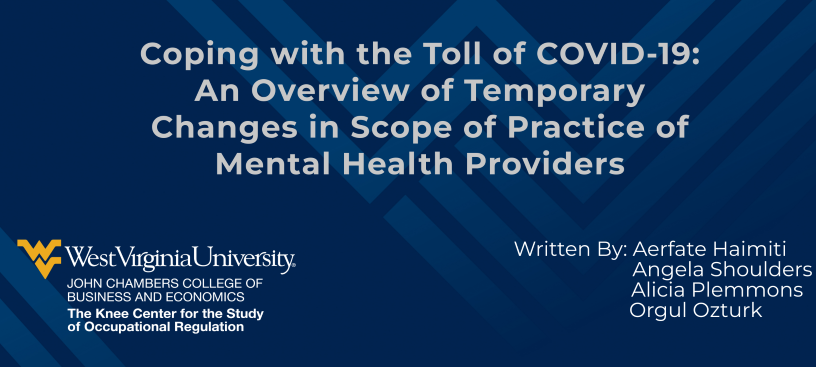
Does Continuing Education Improve the Quality of Services? Evidence from Illinois Real Estate Agents
March 14, 2022
Coping with the Toll of COVID-19: An Overview of Temporary Changes in Scope of Practice of Mental Health Providers
May 23, 2022Policy Brief: Survey of Universal Licensing Reforms in the United States
 Dr. Darwyyn Deyo
Dr. Darwyyn Deyo
Universal licensing recognition is a fast-growing state legislative tool that can expand economic opportunities for skilled workers. The broadest form of universal licensing recognition entails states granting licenses to people who are already licensed in good standing in another state or have experience in the occupation. Less inclusive versions of licensing recognition require that individuals first establish residency, have met substantially equivalent licensing requirements, or restrict recognition to spouses of active-duty military members.
Although licensing recognition is a relatively new reform, 18 states have enacted some form of this policy since 2016. The extent and scope of these reforms vary between states, with some states passing reforms close to full universal licensing recognition, and other states passing weaker reforms. Other states have instead pursued narrower reciprocity agreements and interstate compacts.
This policy brief lists the states with universal licensing recognition as of April 2022 and describes some of the common characteristics of the bills. Figure 1 shows the map of states that have passed universal licensing reform, and Table 1 includes the list of initial reforms by state. The information in Table 1 is also included in the dataset that accompanies this policy brief.


